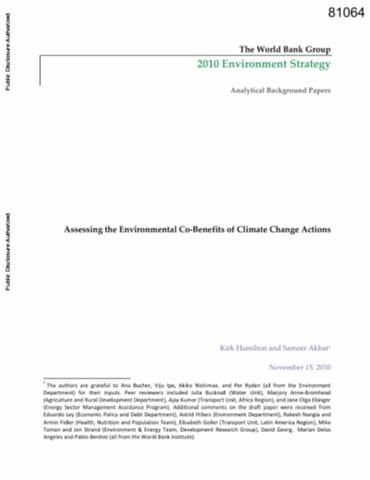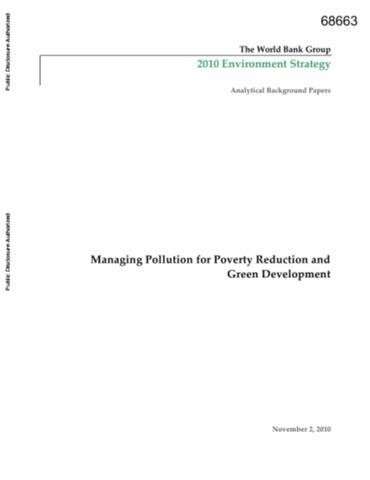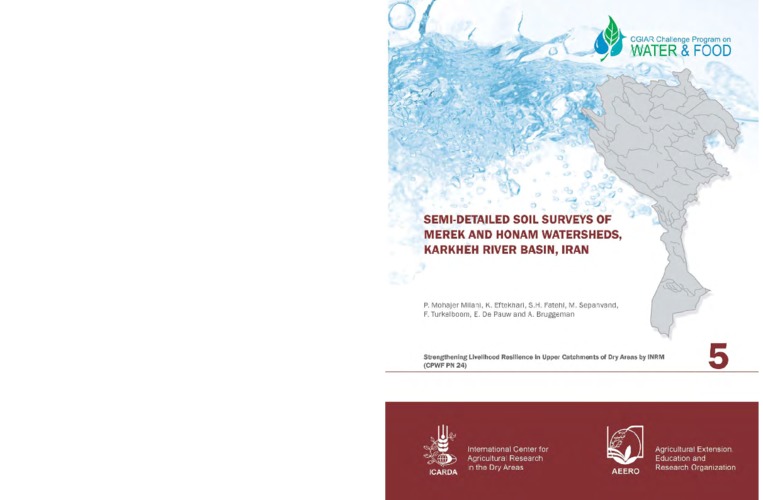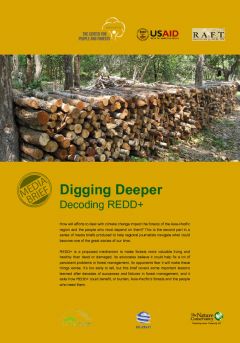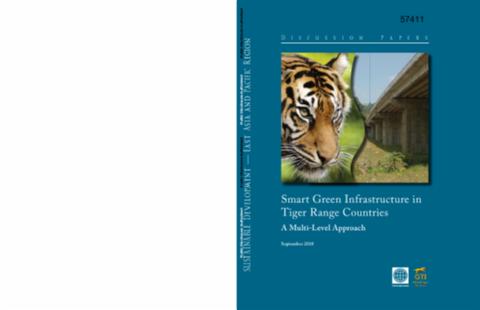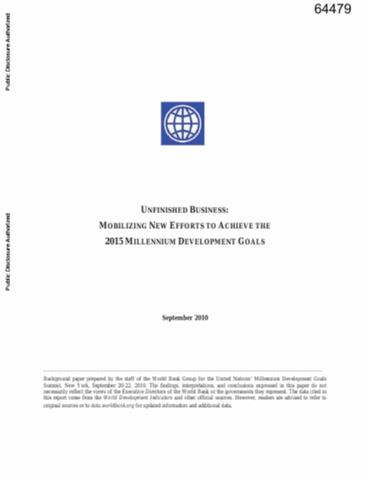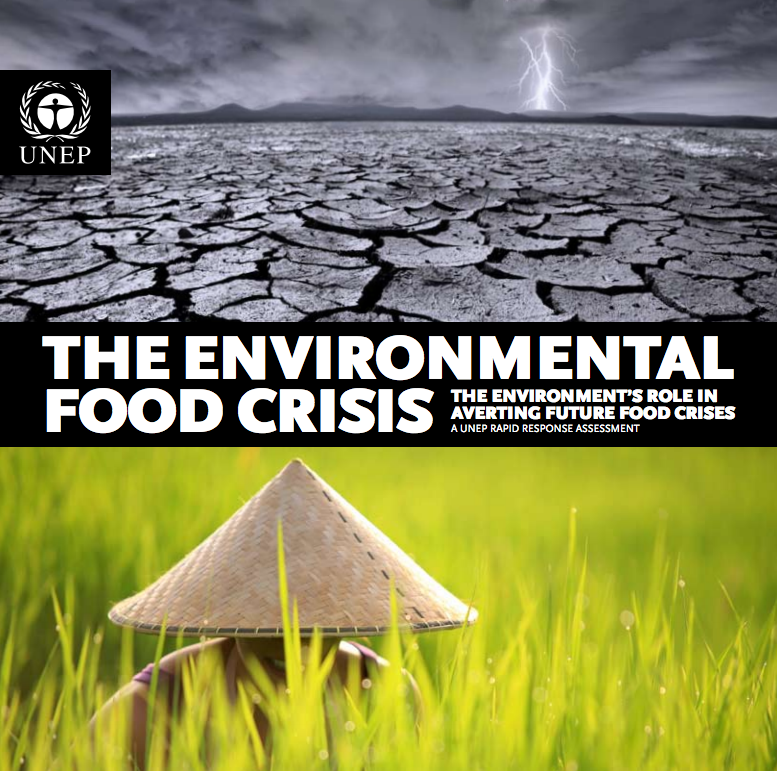Assessing the Environmental Co-Benefits of Climate Change Actions
This internal background paper has been prepared to help inform the 2010 environment strategy with respect to a proposed way forward on use of country systems. The World Bank Group environment strategy is built on three pillars: leveraging natural resources for growth and poverty reduction; managing the environmental risks to growth and development; and transforming growth paths. As part of its exploration of these three pillars, the strategy considers the question of environmental co-benefits of climate change actions.

